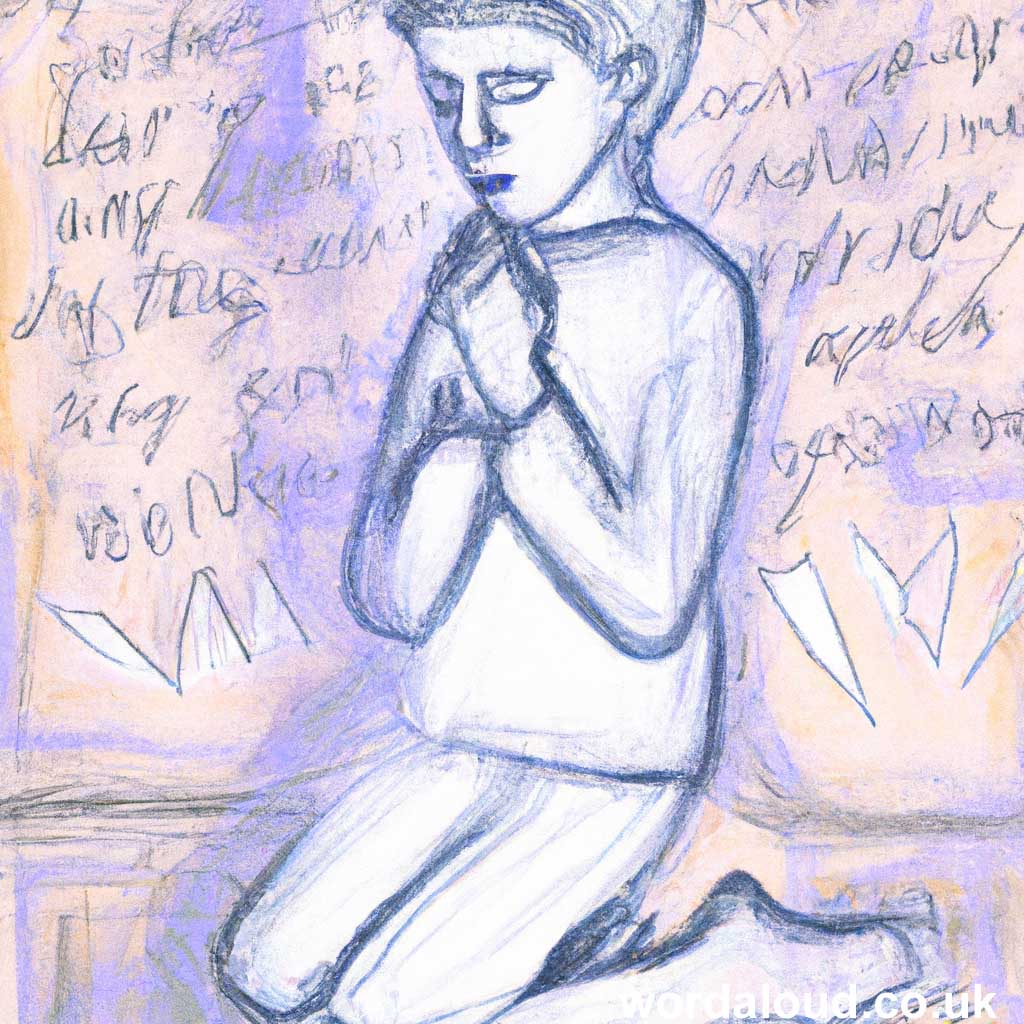‘O God and Heavenly Father, grant to us the serenity of mind to accept that which cannot be changed, courage to change that which can be changed, and wisdom to know the one from the other through Jesus Christ, our Lord, Amen.’ Serenity Prayer
Gospel Reading: Matthew 11:28-30 (KJV)
‘Come unto me, all ye that labour and are heavy laden, and I will give you rest. Take my yoke upon you, and learn of me; for I am meek and lowly in heart: and ye shall find rest unto your souls. For my yoke is easy, and my burden is light.’
Reflection On The Gospel
In this passage, Jesus invites us to find rest in him. Jesus acknowledges the burdens we carry and offers a way to lighten our load. By taking on Jesus’ yoke, we are promised peace and serenity. Jesus’ gentle and humble heart provides a model for us to follow, teaching us to approach life with calm and trust in God’s plan. This invitation to serenity is a reminder that true peace comes from a close relationship with Jesus.
Reflection On Serenity
Serenity is not merely the absence of conflict or stress; it is a profound state of inner peace that comes from trusting in God’s providence. In our fast-paced and often chaotic world, finding serenity can be challenging. Yet, it is precisely in these moments of turmoil that we are called to seek God’s peace. Reflecting on times when I felt overwhelmed, I remember the moments when turning to prayer and Scripture brought me a sense of calm and reassurance. The words of Jesus, ‘I will give you rest,’ are a constant reminder that he is our source of serenity.
One powerful example of seeking serenity is the ‘Serenity Prayer’ by Reinhold Niebuhr. This in part reads: ‘God, grant me the serenity to accept the things I cannot change, courage to change the things I can, and wisdom to know the difference.’ This prayer encapsulates the essence of serenity—acceptance, courage, and wisdom. It encourages us to discern what is within our control and to trust God with what is not. This prayer has been a source of comfort and guidance for many in times of uncertainty and stress.
Prayer
Heavenly Father, I come before you seeking your serenity. My heart is often troubled, and my mind restless. Grant me the peace that only you can provide. Help me to trust in your plan and to rest in your presence. Teach me to carry my burdens with grace, knowing that you are with me every step of the way. May your gentle spirit fill my heart with calm and assurance. In Jesus’ name, I pray. Amen.

![]()
Personal Reflection
Reflecting on my own life, I can see how moments of quiet prayer and reflection have brought me closer to God’s peace. There have been times when the pressures of work, family, and personal struggles seemed overwhelming. Yet, in those moments of stillness before God, I found clarity and strength. I recall a particularly difficult period when a loved one was ill. The stress and worry were immense, but through prayer and trusting in God’s plan, I found a sense of serenity that carried me through.
Meditation On The Prayer And Gospel
The invitation of Jesus to come to him for rest is a call to leave behind our anxieties and to embrace Jesus’ peace. In Matthew 11:28-30, Jesus offers a gentle yoke, one that fits perfectly and makes our burdens light. This passage encourages us to trust in Jesus’ care and to learn from his example of humility and gentleness.
I consider the imagery of a yoke. In agricultural terms, a yoke is used to join two animals together so they can work in unison. When Jesus invites us to take his yoke upon ourselves, Jesus is offering to share our burdens, to walk alongside us, and to guide us. This partnership with Jesus transforms our struggles and brings a sense of balance and peace.
Reflecting further, I am reminded of the story of Jesus calming the storm in Mark 4:35-41. The disciples were terrified as the waves crashed over their boat, but Jesus, with a simple command, ‘Peace, be still,’ calmed the storm. This miracle is a powerful reminder that no matter how tumultuous our lives may seem, Jesus has the power to bring peace and serenity.

Additional Prayer
Lord Jesus, thank you for being my source of peace. Help me to surrender my worries and fears to you. Fill me with your serenity, and let it flow through every aspect of my life. Teach me to rest in your presence and to trust in your guidance. May your peace, which surpasses all understanding, guard my heart and mind. Amen.
Closing Scripture Reading: Philippians 4:6-7 (KJV)
‘Be careful for nothing; but in everything by prayer and supplication with thanksgiving let your requests be made known unto God. And the peace of God, which passeth all understanding, shall keep your hearts and minds through Christ Jesus.’
Our Blessing
May the peace of Christ fill our hearts and guide our steps. May Jesus’ serenity calm our fears and bring us rest. As we go forth, may we carry Jesus’ peace with us, spreading Jesus’ love and compassion to all we meet. Amen.








